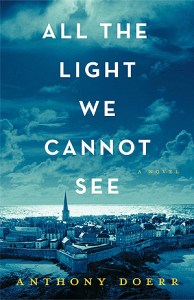Monthly TBR – September 2025
My monthly TBR post is a little later than usual. If you read yesterday‘s Sunday Summary, you’ll know that I’ve just been away. However, now I’m back into full swing and I have a great list of books I’m planning to read in September. Make yourself comfy, and then we can go through the list of books I have been and I’m due to read this month.
Have you read any of the books featured in this monthly TBR?
Fixed Reads
The Atlantis Covenant

The first book on this monthly TBR was the Atlantis Covenant by Rob Jones. If you are a regular reader here, you’ll know I read this book early as I had a blog tour obligation on the 4th of September.
If you are a fan of Indiana Jones and like this kind of high-stakes action with history and archaeology combined, go check out my review of this book!
The Giver

The next book on my list was The Giver. You may recall this book was on my August TBR as we were picking it up for our workbook club. Due to summer holidays, we ended up pushing this meet-up back to tomorrow. In the end, I ended up reading this quite last minute. However, I was able to read the book in just a couple of sessions whilst travelling.
I really enjoyed this children’s dystopia. Although this book is aimed at a younger audience, it didn’t oversimplify the dystopian setting or the message behind the book. It was a really easy and interesting read. And, as you can tell by the way, I’m discussing this book, it’s the second I’ve already ticked off this list.
Sensitive

Switching to audiobooks, my next and current read is Sensitive.
Admittedly, this book is near completion as well. I have just a couple of hours of audio left and I expect I’ll make light work of it.
I’m interested in reading this book as I am pretty sure I fit into the classification of a ‘highly sensitive person’. As the book iterates, there are different ways people can be sensitive and some overlap with other traits. I’m pretty confident I’m an emotionally sensitive person, so it’s been validating to know my feelings and experiences aren’t unique.
We’re getting to a useful section of the book shortly – the authors share strategies for sensitive people to put into practice. That’s one of the main takeaways I’m looking for from this book, so I’m keen to progress with this audiobook!
A Witch’s Guide to Love and Poison

Another fixed read for the month is the Cottagecore Fantasy Book Club read, A Witch’s Guide to Love and Poison. As progress goes, I’m already halfway through this book as of sharing this monthly TBR.
Whilst I’m already ahead, I’m going to prioritise this book so I can encourage conversations about the book in the Discord group. For the last couple of books, I’ve been behind and it’s made the job a little easier. As I picked this up as an ‘easier’ read whilst away, I’m going to keep going.
HR Disrupted

Unfortunately, I didn’t get to HR Disrupted last month. As it’s a loan, I can’t put this book off.
It’s also a short one, so it’s carried forward from August but will absolutely be read soon!
Betrayal of Mercia

Ahead of another upcoming blog tour review next month, I need to catch up on the prior book of the series.
Somehow, I missed reading Betrayal of Mercia as part of the publication blog tour at the beginning of the year. In fairness, I’ve been doing a lot less in the way of tours, so it’s not a surprise I missed this email.
Regardless, I didn’t miss the email for book eight, Shield of Mercia. So, first things first, I’m revisiting the series with Betrayal of Mercia and then heading into book eight.
Mood Reads
The Pagan Lord

Another carry forward, but this time originally featured in my July TBR, is The Pagan Lord.
Historical fiction is more prominent towards the end of this monthly TBR. This isn’t the first historical fiction on this list. But, in practice, I think I’ll start with this well-loved and reasonably short seventh instalment in Bernard Cornwell’s The Saxon Stories series.
Gran Familia

In a completely different change of pace, I’m hoping to read a manga and feature/review the book ahead of its official publication at the end of the month.
As it’s a 200-page manga, I expect it will be a very quick read. It’s also a complete change of pace to the other books on this monthly TBR. I don’t read manga very often, but I think it’ll be nice to introduce some to my reading and my blog content.
Stay tuned for more about this manga in due course.
Shield of Mercia

If I get time at the end of the month, my aim is to start Shield of Mercia ahead of next month’s blog tour review date. It’s early next month that I’m due to review this book. So, it makes sense to start as early as I can!
Summary
I have a large number of books on September’s TBR, but thankfully they are shorter than a lot of the books I have on my wider reading list…
Have you read any of the books featured in this monthly TBR?


Facebook | Twitter | Instagram | Goodreads | Threads | Patreon



















 Top 1% in Epic
Top 1% in Epic